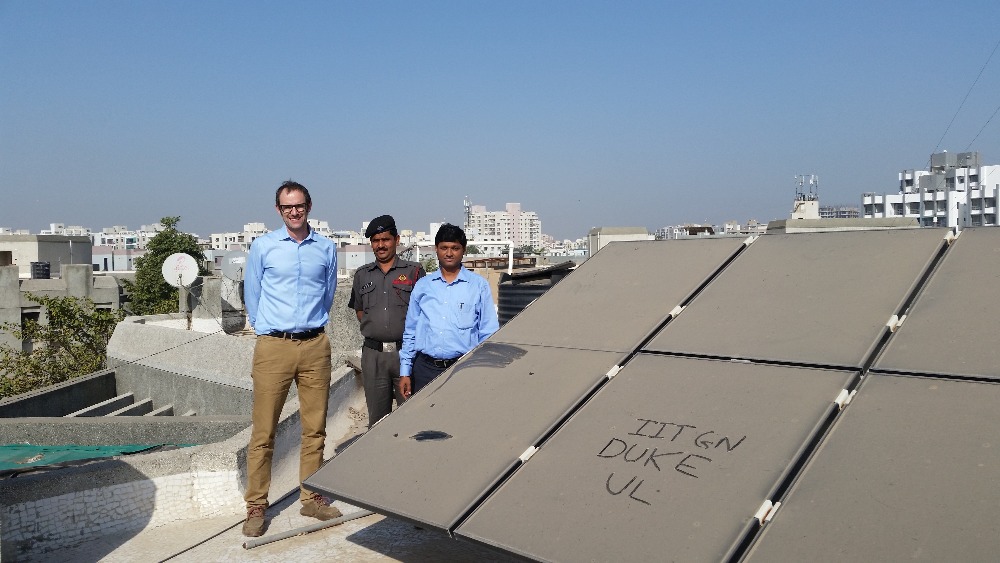Peloso Family Seed Fund Zeroes in on Environmental Engineering
New seed fund supports projects with potential to achieve impactful results at the intersection of engineering and the environment

Getting a research project off the ground is a bit like building a snowball. A researcher’s early-stage, or “seed” grants—what we might think of as the first few mittens full of snow—really count. They allow a researcher to explore a fundamental idea and build a solid proof of concept, and they stabilize the project as it grows.
These types of grants are arguably among the most needed at Duke, said Philip Duhart, associate director of major gifts for Duke Engineering. “Seed funding is instrumental in supporting researchers as they develop new ideas, but it can be hard to come by from traditional sources. Once a project makes it past this early stage, however, it can often qualify for federal grants or venture capital support. Gifts that fuel this early research are extremely helpful to build that pipeline for continued external investment.”
The new Peloso Family Environmental Innovation Research Seed Fund, created with a gift from Missy Peloso BME’79 P’05, Robert Peloso P’05, and Maggie Peloso ’05, M.E.M.’06, PhD ’10, supports projects with potential to achieve impactful results at the intersection of engineering and the environment.
The fund, administered by Duke’s Department of Civil & Environmental Engineering in cooperation with faculty at the Nicholas School of the Environment, provides between $10,000 to $25,000 of critical early- or mid-stage support to faculty and student researchers.
The fund’s first recipients are civil and environmental engineering faculty members Mark Wiesner and Michael Bergin. The pair are studying how particulate air pollution obscures the surface of solar panels.
The fund’s first recipients are civil and environmental engineering faculty members Mark Wiesner and Michael Bergin. The pair are studying how particulate air pollution obscures the surface of solar panels—a process that results in solar energy losses of up to 40 percent in regions with the highest levels of dust or air pollution concentrations, and cause economic losses in the tens of billions of dollars every year.
In spite of these significant impacts, there have been only a handful of studies linking pollution and solar energy production.
Wiesner and Bergin aim to expand the understanding of that relationship, and to determine cost-effective strategies for mitigating the effects of air pollution on solar energy efficiency. Among their goals are to develop recommendations for efficient cleaning strategies and to design new hydrophobic, hydrophilic, and photo-catalytic solar panel coatings that are more resistant to pollutants.
The Peloso Family Environmental Innovation Research Seed Fund award will support doctoral student Hanna Varga as she works to better understand particle deposition processes and to help develop and field-test new solar panel coatings, as part of an interdisciplinary team.
“Support from the Peloso gift will catalyze work in this important area,” said Wiesner. “We’ll be able to create collaborations with key governmental and industry partners, allowing us to develop proposals for extramural funding in the future.”
